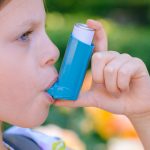
Scientists have reported a link between air pollution and dementia risk, but they haven’t had a good understanding of the mechanisms behind this association. Now, a new study provides some answers. “In this study, we found that two types of vitamin B-related amino acids played a role in increasing or decreasing the risk of dementia caused by air pollution,” said Dr. Giulia Grande, co-author of the report recently published in the journal Neurology. She is a postdoctoral researcher at the Karolinska Institute in Stockholm, Sweden. The study found that higher levels of these vitamin B-related amino acids may be linked to the risk of dementia associated with air pollutants called fine particulate matter, or PM2.5. Researchers looked at this fine particulate matter and two amino acids, methionine and homocysteine. Methionine is an essential amino acid involved in normal brain functions. It is found in foods such as meat, fish, dairy, beans and eggs. Homocysteine is an amino acid produced in the cells that can be transformed to methionine through a reaction that requires vitamin B12 and folate. It is important for red blood cell formation and for healthy cell growth and function. The study included more than 2,500 adults, average age 73, living in central Stockholm. Researchers followed them for up to 12 years using interviews, questionnaires and blood tests. A total of 376 people… read on > read on >
























-300x200.jpg)













